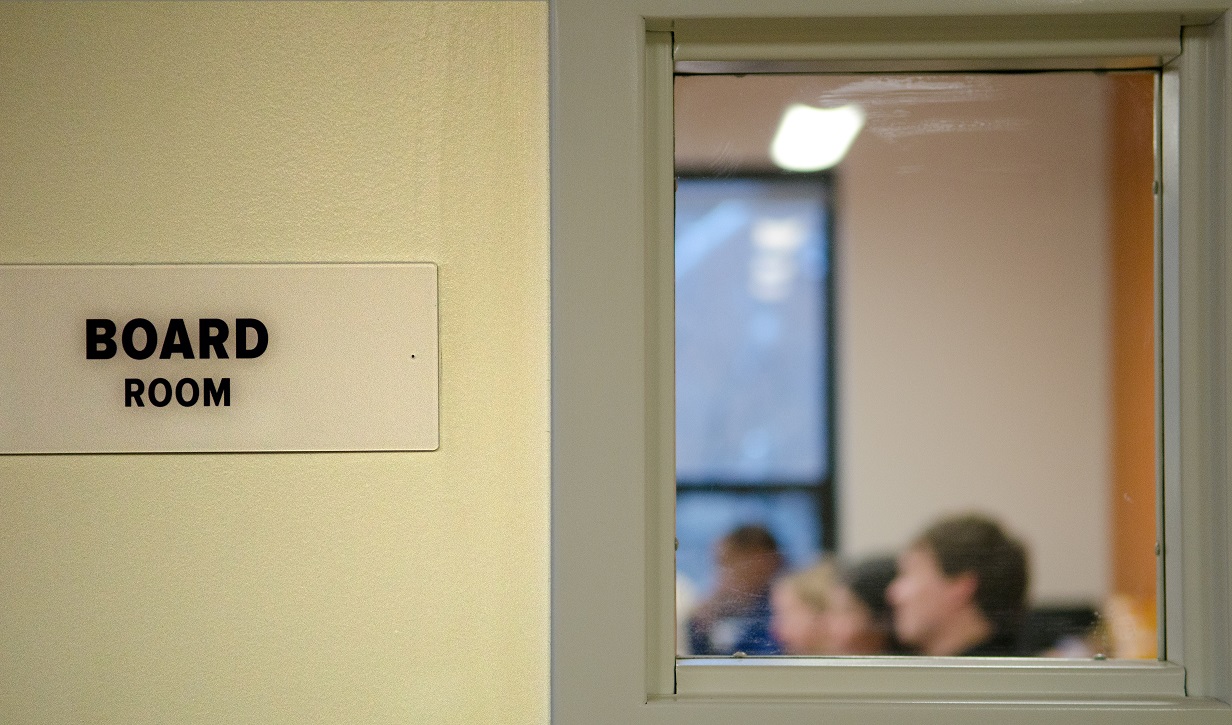It is a well-known fact that those people who most want to rule people are, ipso facto, those least suited to do it… anyone who is capable of getting themselves made a [leader]… should on no account be allowed to do the job. – Douglas Adams, 1952-2001 The question who ought to be boss is like who ought to be the tenor in the quartet? Obviously, the man who can sing tenor. – Henry Ford, 1863-1947 Jokes and pithy quotes aside, board leadership is no laughing matter and it’s a decision that is vital to your board’s success. The board chair/president doesn’t in any way rule over the board; instead, ideally they help the board function more efficiently and effectively across the 4 Pillars of Cooperative Governance, especially the core pillar of Teaming—being able to work well together to achieve our common goals—that underlies all of the work that boards do. And of course our board’s leader shouldn’t simply be whoever is slowest to say no or quickest to say yes to the opportunity to fill the role; likewise, the longest serving director might be the worst choice and the newest director might actually be the best. How can boards consider their needs and their options and efficiently come to a decision that will best serve the board? And how can boards address the potentially conflicting issues of who the board is willing to follow and who wants and is able to fulfill the duties of chair (or other position)? Resources: People who enjoy meetings should not be in charge of anything. – Thomas Sowell, 1930- Grab and Go Solutions is a resource from Columinate to provide easy to implement solutions to common issues facing food co-ops. Watch for future releases tackling a wide variety of topics including HR, governance, member engagement, safety, store and growth.
 Beyond the chair/president, remember, too, that the person who makes the best vice chair/president may not want to or even be well-suited to stepping into the chair/president role. Some boards have had great treasurers who didn’t have a strong financial background and actually used their lack of expertise to understand the financial training needs that the board had. The point is that sometimes the decision as to the best suited for a board leadership role might not be intuitively obvious, so strive for an inviting, inclusive process that helps the board have a transparent, unself-conscious discussion.
Beyond the chair/president, remember, too, that the person who makes the best vice chair/president may not want to or even be well-suited to stepping into the chair/president role. Some boards have had great treasurers who didn’t have a strong financial background and actually used their lack of expertise to understand the financial training needs that the board had. The point is that sometimes the decision as to the best suited for a board leadership role might not be intuitively obvious, so strive for an inviting, inclusive process that helps the board have a transparent, unself-conscious discussion. We want leaders whose primary focus is on serving the board’s needs, not any of the trappings of power that can sometimes come with leadership roles. Reflecting on the characteristics of Servant Leadership might help the board see leadership and the leaders in their midst in a different way.
We want leaders whose primary focus is on serving the board’s needs, not any of the trappings of power that can sometimes come with leadership roles. Reflecting on the characteristics of Servant Leadership might help the board see leadership and the leaders in their midst in a different way.
 Prepare – know that board leadership will change and don’t be surprised
Prepare – know that board leadership will change and don’t be surprised
Have more questions?
Get in touch with one of our consultants.
